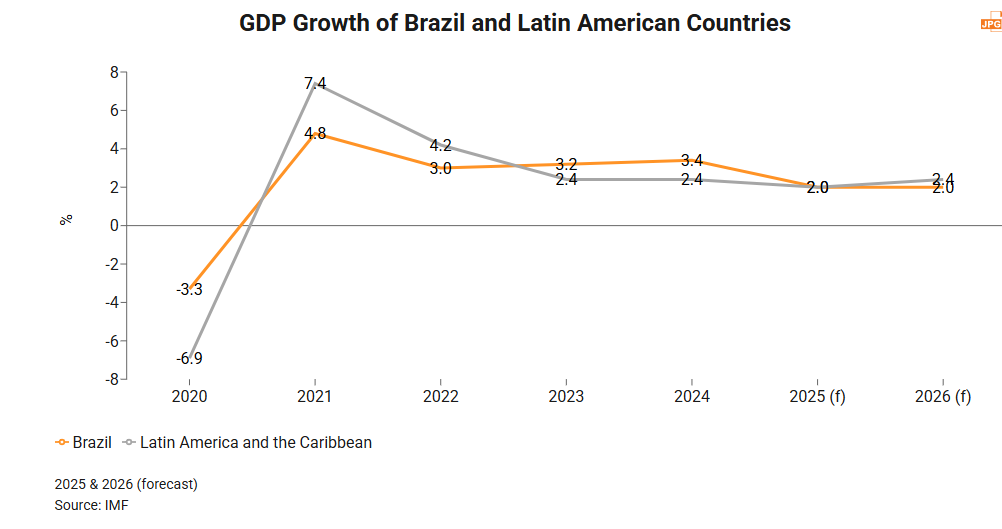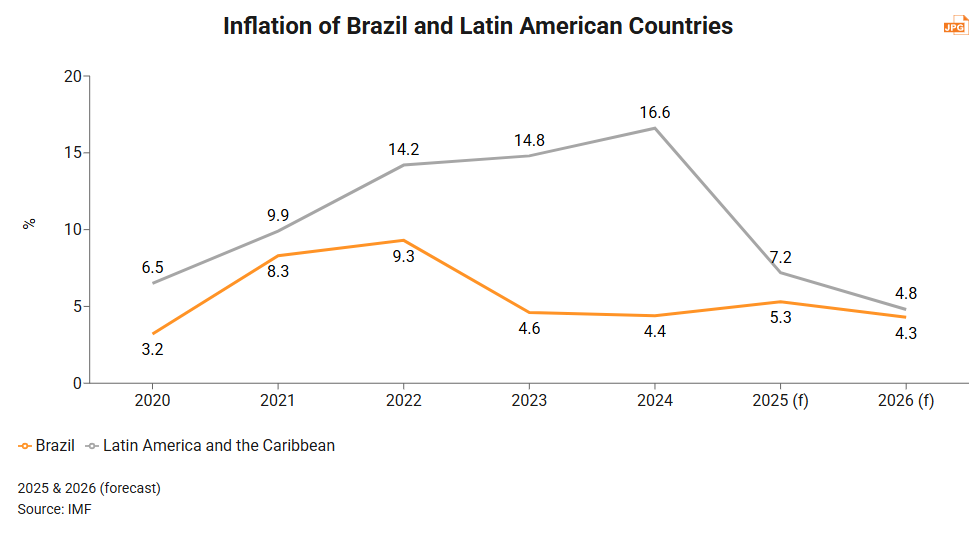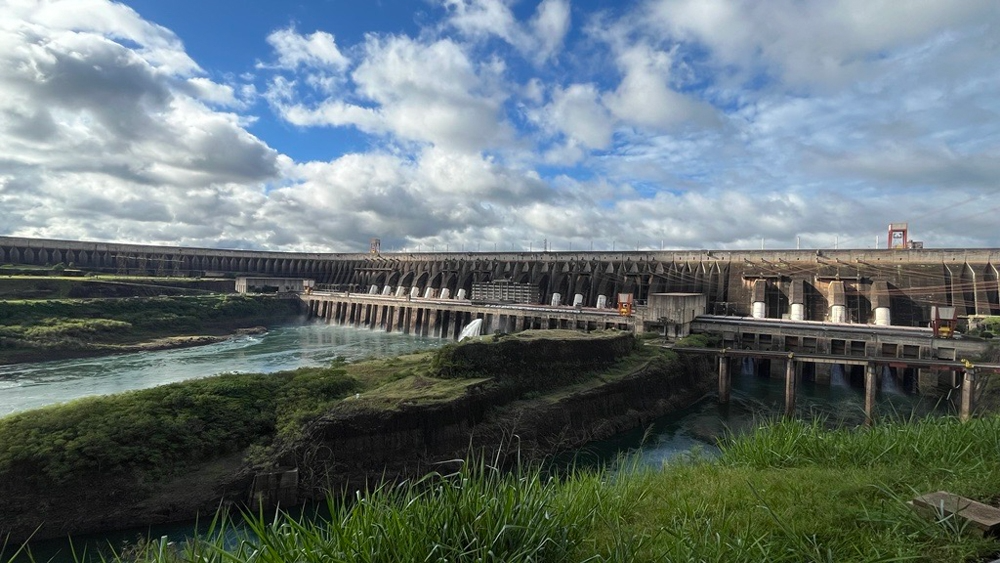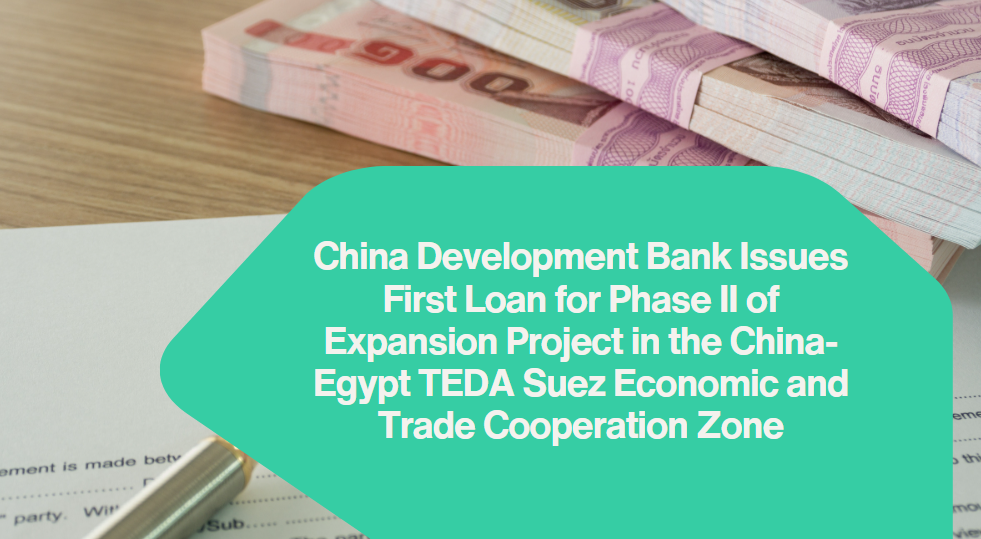Latin America: Brazil's Economic Development(Part 1)
Brazil, as the largest Latin American economy, steers regional development, as well as holding a prominent position on the global stage. Brazil’s abundant natural resources, dynamic economic landscape characterised by sturdy macroeconomic conditions and diverse industries, have shown resilience amid challenges in the past few years. In light of heightened geopolitical tensions and trade conflicts which are set to disrupt the global trade flow and investment, Brazil offers great `potential within the Latin American region, both in terms of consumer market and supply chain diversification. Given Brazil’s prominence, HKTDC Research conducted a market research trip in order to provide first‑hand information on the latest economic developments in the country, with particular focuses on innovation, sustainability and trade and logistics.
Prosperity in the Amazon
Brazil, home to a population of 213 million, stands out as a significant economic force in the region, generating around one‑third of regional GDP, at some US$2.2 trillion. As the largest economy in Latin America with a wealth of natural resources, the tropical country has a diversified business landscape supported by a fertile agricultural sector and strong mining/ quarrying industries, fully backed by a productive manufacturing base and a resilient financial system. According to the IMF’s forecast in April 2025, the Brazilian economy is projected to grow at 2.0% in 2025, with a 5.3% inflation rate.


To foster a more business‑friendly environment and support economic development, the Brazilian government offers numerous incentives at the municipal, state and federal levels to develop its strategic priority sectors, such as agribusiness, mining, energy, infrastructure and technology. One general policy set to benefit all will be the introduction of a tax reform to simplify its complex tax system. The reform will start in 2026 with a four‑year transition that gradually consolidates four existing taxes into a dual value‑added tax (VAT) system [1]. Such streamlining is expected to reduce administrative burdens, attract investments both domestically and internationally, and create a more competitive economic landscape for businesses.
Regional innovation giant
Incubated in this supportive environment for innovation and entrepreneurship, the vibrant startup ecosystem in Brazil has successfully established a strong position within the Latin American region, as well as attracted international investments and acquisitions.
According to theGlobal Startup Ecosystem Index 2024, Brazil ranked 27th globally and first among all startup ecosystems in Latin America & Caribbean economies, followed by Colombia and Chile. In the past decade, Brazil has been proactively supporting startup development with several initiatives and accelerator programmes, includingStartup Brasil, and programmes underApexBrasilandFINEP. Driven by more supporting incentives and accessible funding, available skilled talent and higher level of technology adoption, Brazil has witnessed great prosperity in its startup ecosystem over recent years.
Currently, Brazil is home to 24 unicorns and over 12,000 start‑ups. According toStatista, six out of the leading top 10 unicorns by market value in Latin America were from Brazil, includingQuintoAndar(US$ 5.1 billion),C6 Bank(US$ 5.05 billion) andNuvemshop(US$ 3.1 billion). Several Brazilian unicorns across different sectors have received investments from global venture capital firms and strategic investors, with a few being acquired by international firms. For instance,99, a ride‑hailing app founded in 2012, was acquired byDidi Chuxingin 2018. Shortly after the acquisition,99became the first Brazilian unicorn valued over US$1 billion.
Leading Brazilian Startup Unicorn in 2024 | |
Brazilian Unicorns | Capitalisation value (US$ bn) |
QuintoAndar | 5.1 |
C6 Bank | 5.1 |
Nuvemshop | 3.1 |
Wildlife Studios | 3.0 |
Unico | 2.6 |
CloudWalk | 2.2 |
Source:Statista | |
Pioneer in sustainability with a focus on renewable energy
Brazil’s favourable landscape for innovation is also manifested in its sustainability development. The country has been actively implementing various initiatives to transition towards a greener economy, including preserving biodiversity, reducing carbon emissions, and promoting renewable energy. Its active participation in different international organisations and initiatives underlines Brazil’s staunch support to multilateralism and inclusive universalism.
The most recent example is the 18thG20 Summit 2024, held in Rio de Janeiro on 18‑19 November 2024 under Brazil’s presidency. The Amazon country is also set to host the30th Conference of the Parties to the United Nations Framework Convention on Climate Change (UNFCCC COP 30)which will be held in 2025 in Belém do Pará, Brazil.
Back in 2022, Brazil was the first country in the world to evaluate the performance of all its cities in achieving Sustainable Development Goals (SDGs) [2]. In August 2023, the country signed a newBrazil-UN Sustainable Development Cooperation Framework 2023-2027 (UNSDCF)with theUnited Nation, to ensure their concerted efforts are in concordance with SDGs [3].
Renown for containing a vast area of the Amazon rainforest and a high degree of biological diversity, Brazil is committed to achieving zero deforestation by 2030. Since 2004, the country has already implemented incentives and policies to regulate forest exploitation, promote agroforestry systems, and enforce environmental management.
Brazil ranked first in Latin America and third in the world for the share of renewables in its energy matrix, with renewables making up over 80% of the country's electricity generation. Brazil has been actively expanding its solar and wind energy sectors as part of its renewable energy strategy. The country is also home to Itaipu Binacional, the world’s third largest hydroelectric dam in terms of power generation after the Three Gorges Dam and Baihetan Dam in Mainland China, located on the border between Brazil and Paraguay, generating electricity for both countries [4].

Itaipu Binacional, the world’s third largest hydroelectric dam located on the border between Brazil and Paraguay. Source: HKTDC Research
Apart from leveraging the above renewable energy sources, Brazil has been making us of its prolific agricultural sector, conducting research into advanced biofuels. Derived from food waste and other organic waste, biofuel accounted for a large share of energy production in Brazil. According toInternational Energy Agency, Brazil has the largest share of biofuel in its energy mix among the G20 countries at 36.2%, followed by Indonesia (13.6%) and Germany (12.2%). In 2023, Brazil’s biofuel production reached the historic high of 43 billion litres. Of this, 35.4 billion litres was ethanol and 7.5 billion litres biodiesel. Production of biomethane also reached 74.9 million m3.
Sustainability development in Brazil extends beyond the state level, permeating individual firms, thus fostering synergy among industry players in achieving their sustainability objectives.CIBiogas, which partners with local companies and startups to develop biogas solutions, is a major player in the field. Promoting biogas, the firm offers customised business models and technological solutions using organic waste.
To stimulate biogas development in Brazil, CIBiogas created Biogas Club, gathering over 50 institutions and companies with the same objective. Among its members is Frimesa, Brazil’s fourth largest pork producer, which exports to over 30 countries across the world. With the technological consultancy offered by CIBiogas, Frimesa transformed its biowaste into biogas that is mainly used in pig singeing.





















































First, please LoginComment After ~